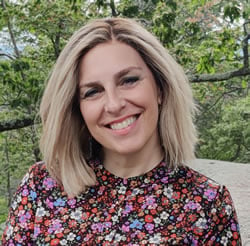
Dear Readers,
“Mommy! Mommy!” The frantic voice of a crying toddler could be heard in the large supermarket. “Mommy! Where are you?” His cries were becoming louder and more distressed.
At the tender sound of the word “Mommy,” my back tensed and my heart beat furiously. I desperately searched for the voice of the crying child. For that nanosecond I forgot that I no longer have any young children, and my body became physically stressed, thinking he was my own. I noticed other mothers, too, grasping their child’s hand tighter until the little boy was reunited with his mother.
For that short time, this child was every mother’s child. And when we view a stranger’s child as our own, we feel more than just compassion for him; we feel an actual bond that changes us.
There is a chasm between compassion and love. Compassion means I have sympathy, kindness or empathy for you. But there is me, and there is you. I am opening myself up to you; I have compassion for your plight, and I am willing to give of myself to alleviate your difficulty.
Love, on the other hand, means an inherent connection and a personal attachment. To truly love someone means to feel united with him. I am pained by your pain; your happiness is my happiness. There is no evaluation of worthiness or lack thereof. There are no stark boundaries.
This week is Gimmel Tammuz, the yahrtzeit of the Rebbe. From his first talk upon accepting the leadership of Chabad-Lubavitch in 1951, the Rebbe made the ideal of loving every Jew a cornerstone of his mission. He saw an unbreakable, three-pronged union between love of every Jew, love of G‑d and love of the Torah.
The Rebbe taught us how to look at another person. Not only to have compassion for him. Not just to try to “help” him or feel pained by his plight. But to feel united with him.
How can we achieve this level of love? By viewing the other person as ourselves—as our own child, sister or brother. As a real part of myself. And from this perspective, there are no labels or parameters; there is no judgment of good or bad. There is no concept of “another” type of Jew; every Jew is related to me, and is mine.
The Rebbe explained:
Instead of focusing on our personal “I,” we can highlight the G‑dly spark we possess, our true and most genuine self. And when a person’s G‑dly spark shines brightly, he is able to appreciate that a similar spark also burns within everyone. He can thus love another person as himself, because he and the other share a fundamental identity.
This week, in honor of the Rebbe’s yahrtzeit, let’s make an effort to increase acts of love in our world by seeing beyond our differences and finding the divine core that unites us all.
Wishing you a very loving week!
Chana Weisberg,
Editor, TJW



